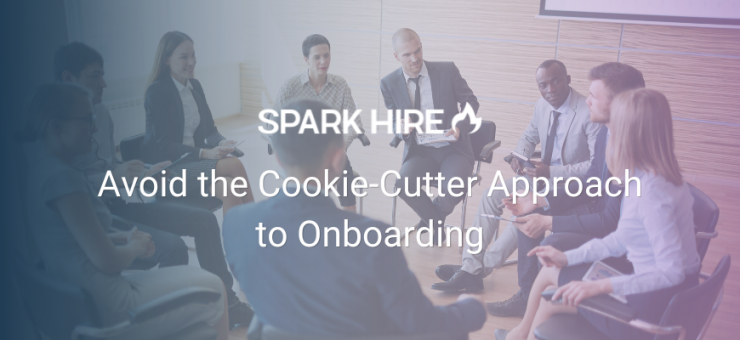If you believe that our education system in the United States is broken, you’re right. We’ve taken the cookie-cutter approach to education. We think all kids should follow the same path for learning. It’s sort of worked for a while, but we’re falling behind now.
I watched a TED talk recently about this very point. Sir Ken Robinson explains how other parts of the world see education – and they’re thriving. Drop-out rate? What’s that?
I’ve come to think that people have taken the same approach to onboarding. If everyone is different in their own way, why do we believe a cookie-cutter approach to onboarding will work? Is it because we’re lazy? Do we simply want an assembly line approach to our problems?
I don’t think we’re lazy – we’re just not challenging the status quo enough. We’re not letting creativity shine through when new people join the team.
If you’re wondering how to do it, here are a few things you can try:
- Start with a base outline of what you want to accomplish. This will include things like health care, payroll, the first day, mentor meetings, etc. Use this as your basic plan.
- Using your basic plan, personalize it. Get to know the person joining the team. They’ve been interviewed, right? Bring in some of the people who were part of the interviews and ask them for insights.
- Recognize each personal onboarding plan will take more time to do upfront. However, think of it as an investment. By taking the time to personalize the process, people will enjoy themselves more and feel like they’re learning at a rapid pace.
By creating a personal experience for each new person joining your team, you’ll get to know them even better.
If you’re stumped on how to learn more about the person, here are some ways you can do it. For some people, these may be obvious.
- Ask if they have a public Facebook page. Don’t stalk them – simply look for their interests. It’s okay to know what your employees do outside of work.
- Check their blog. Many people keep personal blogs these days. Read their posts and ask them about it. Nothing is more flattering than people asking about something you wrote.
- Know about their past experience and refer to it. You can easily check their LinkedIn profile to see information about their previous jobs. People appreciate it when you take a moment to learn about them.
By utilizing these tips you’ll know more about the employee’s strengths and weaknesses, their personality, how they’ll fit into your team, where they have room to learn, and how fast they do it. It’s an investment you won’t regret and it will pay dividends in the future. People on your team will be happier and you’ll retain key employees.
If you simply try to create a standard process, you won’t be taking advantage of a precious opportunity. Standard processes have their place. We all know about standardized testing in schools (and we hated it). Why use a standard approach for your new employees?
About the Author: Derek Hopper is the author of this article and the Founder of Onboarder which provides simple onboarding tools for IT & HR.











